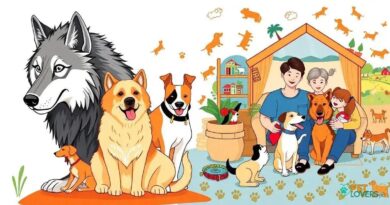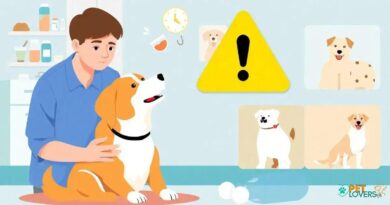O que é informed pet ownership
What is Informed Pet Ownership?
Informed pet ownership refers to the responsibility and knowledge that pet owners should possess to ensure the well-being of their pets. This concept emphasizes the importance of understanding the needs of pets, including their physical, emotional, and social requirements. By being informed, pet owners can make better decisions regarding their pets’ health, nutrition, and overall care, leading to happier and healthier lives for their furry companions.
The Importance of Education in Pet Ownership
Education plays a crucial role in informed pet ownership. Pet owners should seek out reliable resources, such as veterinary advice, books, and reputable websites, to learn about their pets’ specific needs. Understanding breed characteristics, common health issues, and behavioral traits can significantly impact how owners interact with and care for their pets. This knowledge empowers owners to provide a nurturing environment that caters to their pets’ unique requirements.
Health and Nutrition Considerations
One of the key aspects of informed pet ownership is ensuring that pets receive proper health care and nutrition. Regular veterinary check-ups, vaccinations, and preventive treatments are essential for maintaining a pet’s health. Additionally, understanding the nutritional needs of pets, including the right type of food and portion sizes, helps prevent obesity and related health issues. Informed owners are proactive in seeking advice from veterinarians about the best dietary practices for their pets.
Understanding Behavioral Needs
Informed pet ownership also involves recognizing and addressing the behavioral needs of pets. Dogs, for example, require regular exercise, mental stimulation, and social interaction to thrive. Owners should educate themselves about training techniques and behavioral cues to foster a positive relationship with their pets. By understanding their pets’ behaviors, owners can prevent issues such as anxiety, aggression, and destructive tendencies, leading to a harmonious household.
Socialization and Interaction
Socialization is a vital component of informed pet ownership. Exposing pets to various environments, people, and other animals helps them develop confidence and reduces the likelihood of fear-based behaviors. Owners should actively seek opportunities for their pets to socialize, whether through dog parks, training classes, or playdates with other pets. This not only benefits the pet’s mental health but also enhances the bond between the owner and their furry friend.
Responsible Breeding and Adoption
Informed pet ownership extends to understanding the implications of breeding and adoption. Potential pet owners should research reputable breeders or consider adopting from shelters to ensure they are supporting ethical practices. Being informed about the responsibilities that come with pet ownership, including the long-term commitment and potential challenges, is crucial for making responsible decisions that benefit both the pet and the owner.
Emergency Preparedness
An essential aspect of informed pet ownership is being prepared for emergencies. Pet owners should have a plan in place for various situations, such as natural disasters, medical emergencies, or unexpected events. This includes having an emergency kit with essential supplies, knowing the location of pet-friendly shelters, and having a list of emergency contacts, including veterinarians. Being prepared can make a significant difference in ensuring the safety and well-being of pets during crises.
Legal Responsibilities of Pet Owners
Informed pet ownership also involves understanding the legal responsibilities associated with owning a pet. This includes knowing local laws regarding pet ownership, licensing requirements, and leash laws. Pet owners should be aware of their obligations to prevent their pets from causing harm to others and to ensure that their pets do not become a nuisance in the community. Being informed about these legal aspects helps foster a positive relationship between pet owners and their communities.
The Role of Community Resources
Community resources play a vital role in promoting informed pet ownership. Local animal shelters, veterinary clinics, and pet organizations often provide educational programs, workshops, and resources for pet owners. Engaging with these resources allows owners to stay informed about best practices in pet care, training, and health. Building a network within the community can also provide support and guidance for pet owners navigating the challenges of pet ownership.
Continuous Learning and Adaptation
Finally, informed pet ownership is an ongoing journey that requires continuous learning and adaptation. As pets age, their needs may change, and new research may emerge regarding pet care practices. Pet owners should remain open to learning and adapting their approaches to meet their pets’ evolving needs. By committing to lifelong education and being proactive in their pets’ care, owners can ensure a fulfilling and enriching life for their beloved companions.



